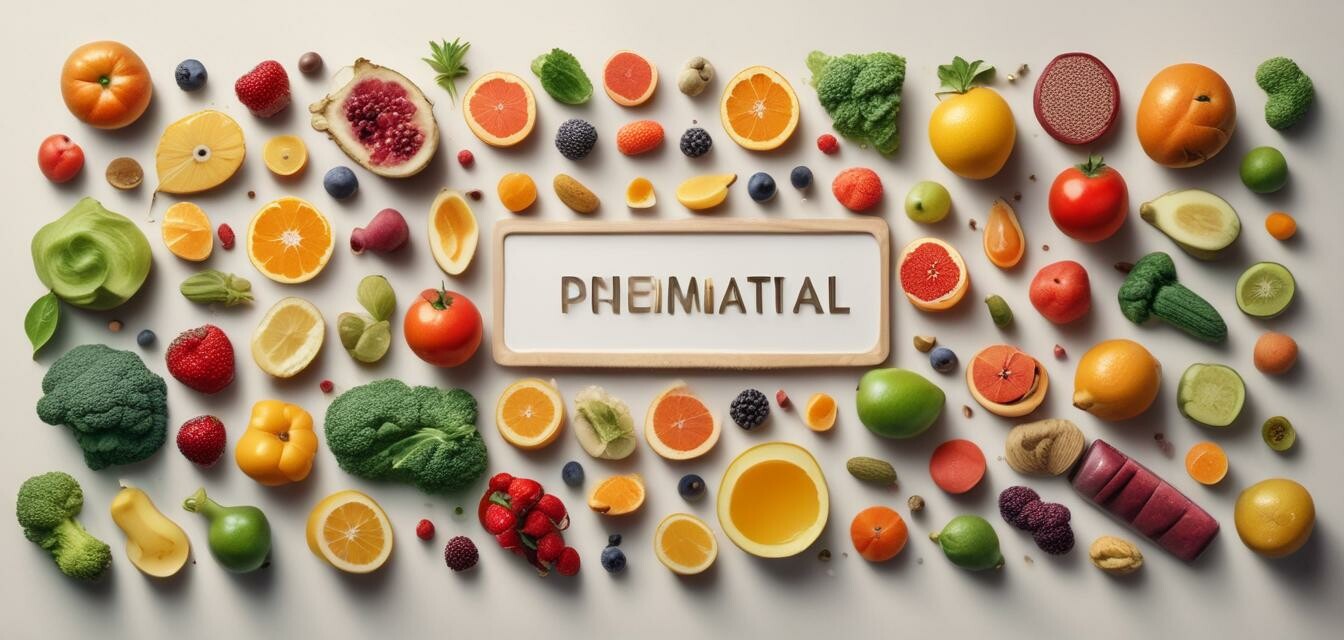
The impact of prenatal vitamins on baby's development
- Prenatal vitamins provide essential nutrients crucial for fetal growth.
- Each stage of pregnancy demands specific vitamins and minerals.
- Consulting with healthcare providers is recommended when choosing prenatal vitamins.
- A balanced diet, combined with prenatal vitamins, supports overall health.
- Understanding the nutritional needs during pregnancy empowers mothers to make informed choices.
Expecting mothers often seek ways to support their baby's development. One of the most crucial aspects is ensuring proper nutrition—especially through the use of prenatal vitamins. This article explores how these vitamins influence fetal development and details the essential nutrients needed at various developmental stages.
What are prenatal vitamins?
Prenatal vitamins are specially formulated supplements designed to meet the unique nutritional needs of pregnant women. They typically contain a combination of vitamins and minerals, including folic acid, iron, calcium, and DHA, which play a significant role in both maternal health and fetal development.
The role of essential nutrients in fetal development
During pregnancy, the body undergoes significant changes, requiring various nutrients to ensure both mother and baby remain healthy. Below is a breakdown of essential nutrients and their roles:
| Nutrient | Role in fetal development |
|---|---|
| Folic Acid | Supports cell division and is essential for neural tube development. |
| Iron | Helps in the formation of hemoglobin, reducing the risk of anemia. |
| Calcium | Supports the development of the baby's bones and teeth. |
| DHA | Contributes to brain growth and eye development. |
| Vitamin D | Assists in calcium absorption and supports the immune system. |
Trimester breakdown: Nutritional needs
Each trimester of pregnancy brings unique requirements. Understanding these can help ensure adequate nutrition for every stage of fetal growth:
- First Trimester: Focus on folic acid to prevent neural tube defects. Adequate iron intake is also crucial to combat potential fatigue.
- Second Trimester: Increased demand for calcium and DHA for the baby's developing bones and brain.
- Third Trimester: Nutrient needs peak; maintaining iron levels is crucial as the blood volume increases and the baby grows rapidly.
Healthcare professional guidance
It's essential to consult with healthcare providers to tailor vitamin intake according to personal needs. A healthcare employee can help assess dietary requirements, suggest appropriate supplements, and provide insights into safe practices during pregnancy.
The importance of a balanced diet
While prenatal vitamins are important, they are not a substitute for a balanced diet. A variety of foods should be consumed, including:
Tip: Food groups to include in your pregnancy diet
- Fruits and Vegetables - Rich in vitamins and antioxidants.
- Whole Grains - Provide energy and fiber.
- Lean Proteins - Essential for baby's growth.
- Healthy Fats - Found in fish, nuts, and seeds, crucial for brain development.
Myths about prenatal vitamins
There are various misconceptions surrounding prenatal vitamins. Here are a few:
- Prenatal vitamins can replace healthy eating - This is not true; a balanced diet is still necessary.
- You only need to take prenatal vitamins if you’re trying to get pregnant - This is incorrect; they support health during pregnancy and beyond.
- All prenatal vitamins provide the same nutrients - Not all supplements are created equal; some may lack crucial components.
How to choose the right prenatal vitamin
When selecting a prenatal vitamin, consider the following:
- Check for the presence of DHA, folic acid, iron, and calcium.
- Look for certifications such as gluten-free or non-GMO, if necessary.
- Seek recommendations from healthcare professionals.
Pros
- Provides essential nutrients for mother and baby's health.
- Supports various stages of fetal development.
- Can help prevent deficiencies common during pregnancy.
Cons
- Over-reliance on supplements can lead to neglecting dietary sources.
- Some women may experience digestive issues with certain formulations.
Conclusion
Prenatal vitamins play a significant role in supporting fetal development and ensuring the health of expecting mothers. By choosing the right vitamins, coupled with a balanced diet, mothers can provide the best foundation for their baby’s growth. Always remember that health is a personal journey, and consulting with a healthcare provider can pave the way for a healthy pregnancy.
For more insights on prenatal nutrition, consider exploring our Healthy Pregnancy Tips section where you can find valuable information to support your pregnancy journey.
